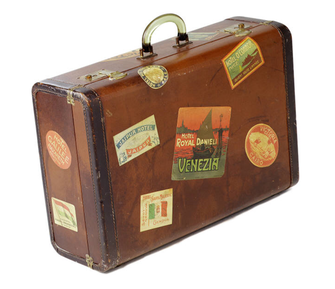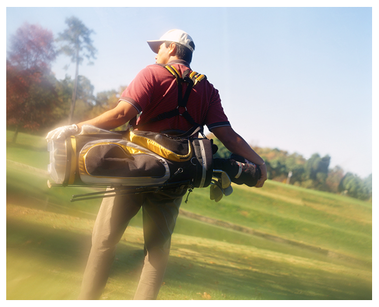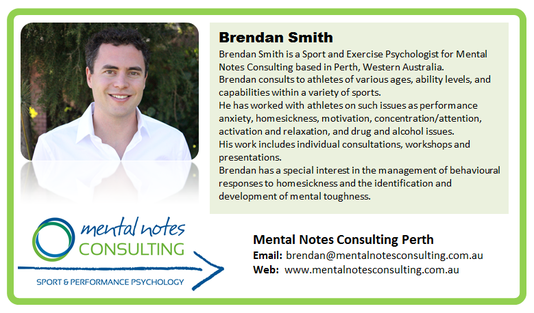 Traveling solo, away from home, family and friends can be a routine part of life for a tour player. On tour, many players will experience symptoms of homesickness. Granted, many of these symptoms may be easily dismissed and have no impact on athlete well-being or performance. What happens when homesickness does become an issue for you when you’re on the tour? Here are four valuable points to assist with restricting the impact of homesickness on your performance. 1. REALISE IT’S NOT JUST YOU 2. UNDERSTAND HOMESICKNESS AND PERFORMANCE 3. RECOGNIZE YOUR HABITS ON TOUR THAT MAY CONTRIBUTE TO HOMESICKNESS 4. BE PROACTIVE! Consider the following questions … •What are the challenges you might face on tour, even if its not your first season? •What kind of emotions might you experience during the tour season? If you have already embarked on multiple seasons on tour reflect and consider some of the challenges you are managing or have had to overcome. For many players the prospect of playing on the tour, in any part of the world, would evoke a roller coaster of emotional responses, such as excitement, joy, apprehension, stress, or anxiety. These kinds of responses all occur with good reason! Touring different environments can be stressful.  We may worry about how we will perform, how we will fit in with others, if we will learn the structures and procedures of the new environment, how we manage cultural differences, or how much we might miss home. 1. REALISE IT’S NOT JUST YOU In amongst all this emotion there are a few things that we must remember about touring… • Many pros express how lonely the tour can be, so you are not alone. • Playing on the pro-tour circuit can evoke array of emotions ranging from excitement and joy to anxiety and discomfort. These emotions are normal. • Experiencing these emotions is not the focus. The focus should be on how we choose to respond to them. UNDERSTAND HOMESICKNESS AND PERFORMANCE The following chain of events demonstrates how homesickness symptoms may link to poor performance: Poor management of homesickness symptoms » Poor well-being » Decreased performance in sport and education If you are unable to effectively manage homesickness this may decrease your well-being as the homesickness symptoms start to impact how you function. For example, your attendance to training, your quality of sleep, and your mood may be affected. As your well-being decreases so may your performance. This may present as a loss of motivation to train, loss of concentration and poor appetite, possibly resulting in poor performance outcomes.  It is important to remember the experience of homesickness presents in different ways for different people. RECOGNIZE YOUR HABITS ON TOUR THAT MAY CONTRIBUTE TO ISOLATION AND HOMESICKNESS Players on tour will often keep to themselves, especially when they are not playing well. It is important to recognize that if this is a problem for you then you need to consider working on alternative coping strategies that do not isolate you from your friends or making new friends on tour. It is also important to consider who you choose to room with on tour and your own actions when rooming with others. Consider how you like to prepare the day or night before the tour. Players who decide to room together should know ahead of time about these things so that the room sharing works as best as possible for both players. That way it is unlikely to be an unpleasant experience. While all players should respect and support roommates pre-performance routines, it is important to be mindful that your own routine isn’t creating any unnecessary isolation or difficulties. As a pro-tour player, take a look at your own pre-performance routine. Talk with your coach and other players about suggestions for fine-tuning or adjusting your routine if you feel it is required. A routine that keeps you locked in your room all the time may be elevating anxiety and contributing to over-thinking about your round, which is certainly not preparing you to play your best round. Get into the habit of connecting with other players on the tour, not just the players from your own country. It is important not to just play your round and check out the scene. Meeting people does not have to compromise your post round practice and focus. If this is an excuse you often use to avoid connecting with others than it is important to consider what is holding you back personally. Remember tours can be a fantastic way to meet people from all over the world and provide options for training partners in the off-season. Despite how you are feeling, taking a proactive approach to your circumstance will help reduce the impact of homesickness on your well-being and performance. 4. BE PROACTIVE! This involves being proactive in your new environment. How to be proactive may differ between people however some examples might include: •Planning and/or become involved in social events. •Spending time with friends/teammates outside of training/competition. •Seeking help when required. •Talking about homesickness with others. •Developing a social support network. •Developing a plan to learn about your new environment. •Identifying with what you most enjoy most in both environments. Additionally, an appointment with a psychologist can help you to identify and manage your experience of homesickness and help you prepare for some of the challenges you might face on tour… Seeking out someone to work with is another way to be proactive! Brendan Smith | Psychologist Email Brendan on [email protected] if you have any further questions, or visit www.mentalnotesconsulting.com.au to find out more about the signs and symptoms of homesickness. Comments are closed.
|
Archives
June 2019
|
Proudly Supported By
Copyright © 2011 - 2018 Pro Tour Golf College
Website Managed By Golf Performance Media
All Rights Reserved
Website Managed By Golf Performance Media
All Rights Reserved


 RSS Feed
RSS Feed



